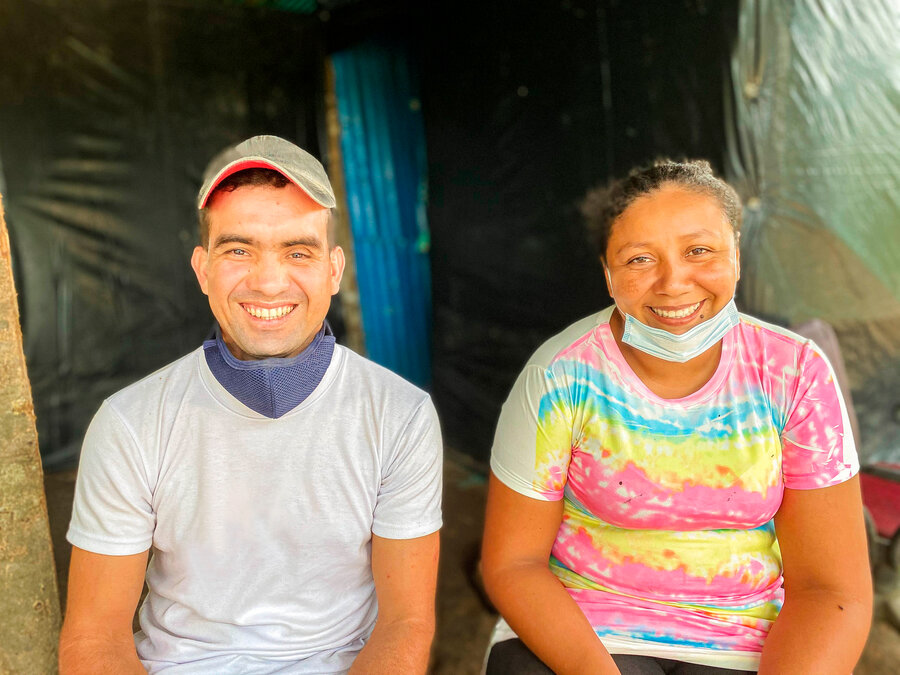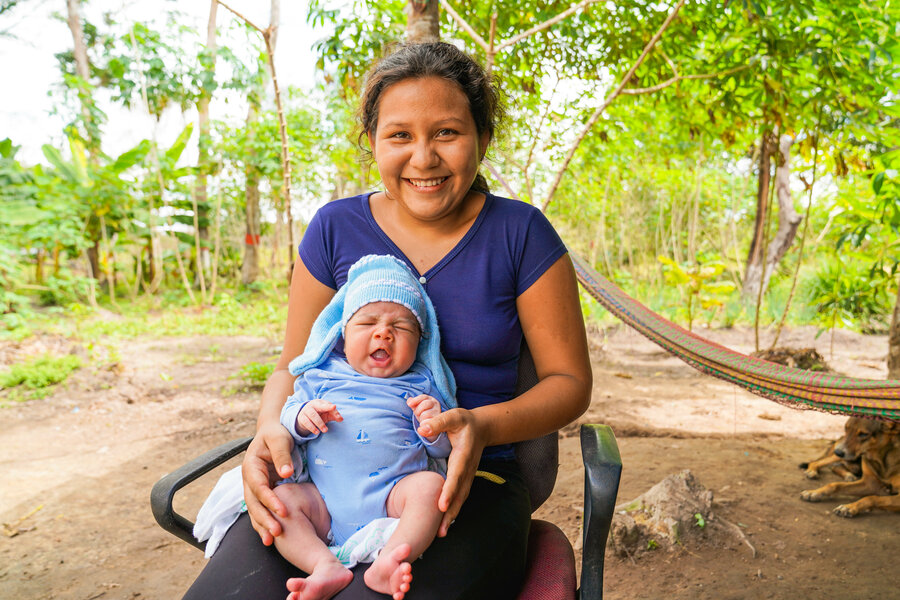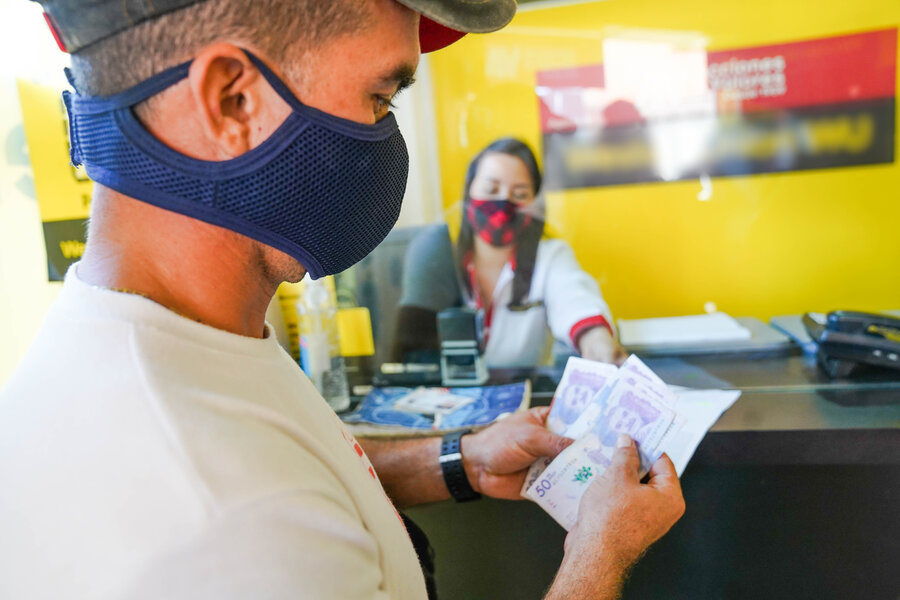How social safety nets empower families and aid enterprise on the Colombia-Venezuela border

Deicy Cuero recalls the desperate times when she and her husband José Ochoa were left knocking on neighbours’ doors for help — they even resorted to approaching strangers in the street.
“When the need for food is that great, so many things go through your mind — especially when your son asks you, ‘What time are we eating breakfast?',” she says.
The couple and their family had migrated from Barinas state, in the southwest of Venezuela, to the border region of Arauca in Colombia. It was a difficult decision, but they had little choice. Their family was large and grew further with the arrival of the couple’s first grandson.
However, things in Arauca got bad when the economic fallout of the COVID-19 pandemic placed additional strain on communities already facing multiple challenges due to extreme weather, threats and violence from armed groups. This was compounded by the different risks that migration entails, such as lack of formal employment and very limited access to basic services, including social protection such as cash transfers.
Deicy needed mental health support: “I got sick, I was very unwell,” she says. “I thought it was my heart but it was stress that was killing me.”
It was a missed call on his phone that alerted José that food assistance was on its way, through a pilot programme jointly put in place by the World Food Programme (WFP) and the Government of Colombia, centred on shock-responsive social protection.

The pilot programme expanded the coverage of the national social protection system, with vulnerable migrants and host communities now also included in the emergency support provided in response to COVID-19. This included cash transfers and in-kind food distributions aimed at more than 72,000 vulnerable people, among them Venezuelan migrants, Colombian returnees and vulnerable Colombians in host communities in Arauca.
Deicy’s family received a cash transfer, which they used to buy food. “With that money we can eat breakfast, lunch and dinner,” she says. The money was also enough to build a small shed to raise chickens in their backyard, which they hope will be a source of income. “It’s always been our dream to have a shed for chicks,” adds Deicy.
Close collaboration with the Colombian government
This is an example of collaboration between groups working in social protection and the wider humanitarian field to meet the needs of, and address the risks faced by, vulnerable groups in challenging times. For the pilot’s design, WFP worked with Colombia’s Administrative Department for Social Prosperity, Border Management for the Presidency of the Republic of Colombia, and National Risk Management Unit.
The transfer value provided by WFP through the pilot was aligned with the emergency social protection programmes provided by the Government of Colombia, to ensure consistency with the national social protection system.
To get the pilot running as quickly as possible, WFP piggybacked on the information available in the national social registry, SISBEN, working with local authorities to fill data gaps and effectively reach all selected beneficiaries.
“What was done in the department of Arauca is a source of pride,” says Lucas Gómez, Colombia's presidential adviser on border matters. “WFP’s rapid response complemented the Government’s assistance and added a dimension of innovation to improve information on the migrant population.
“This is sending a message, that we have to advance in the integration between migrants and host communities, and we need much more support from the international community.”

Luz Marina Gómez, Regional Director for Social Prosperity in Arauca, explains: “Our partnership with WFP offers a very interesting example of complementary work to re-integrate into the economy families affected by the crisis caused by COVID-19, who live in poverty or extreme poverty. Without WFP’s support, we would not have been able to reach thousands of families in the whole region.”
Tania Niño, WFP Social Protection Officer in Colombia, says: “At WFP, we build on the strengths that the State has and work together to reach the most vulnerable when they need it most. This is an excellent example of effective support and coordination, which could be replicated throughout the country.”
For migrant families, the pilot project is a lifeline — as it is for Colombians who returned after having migrated to Venezuela. Starting a new life far from home is not easy. People leave behind family, friends, customs. In that situation, “you need a lot of help,” says Deicy. “You have nowhere to go; we are like wandering birds.”
